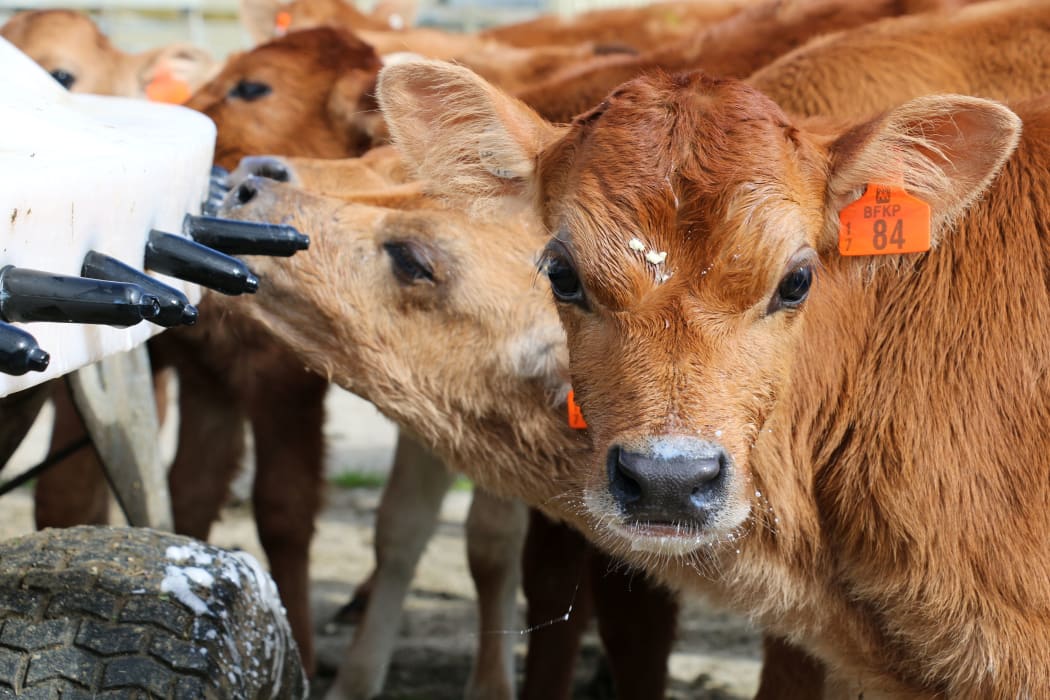Do you know what is happening on farms and orchards around New Zealand? Each week reporters from Country Life talk to rural people about what is happening around New Zealand. Here's what they told us.

Photo: Cosmo Kentish-Barnes
Northland
Younger cattle have been selling well coming into a spring market. An average-to-better yearling steer has been fetching $880 to $950 and decent heifers $800 to $860. Wednesday was one of the worst days this winter - cold and bleak with hail, thunder and lightning. Thursday was sunny and Friday sunnier.
Pukekohe
This weekend's weather will be like the last - fine. Unfortunately, the work days have been wet. With few exceptions, growers have kept off their fields unless crops were ready to harvest. With heavy supplies of broccoli retailing at unprofitable prices, working in the rain and muddy fields would appear to be a waste of time.
Waikato
Soil moisture levels are at capacity and farmers don't want any more rain. Calving is 60 to 80 percent through. Farmers have been taking preventive health measures - dosing cows up on minerals so there's not been much milk fever around. Cows are eating the grass faster than it can grow but as the day length picks up so will growth rates.
King Country
It has been a very wet week. The rain hit its peak on Tuesday night and by Wednesday levels in the Whanganui River reached ten times the normal flow. The weather tested the fortitude of shepherds and farmers attending to the lambing needs of their flocks. Fortunately, the later main flock ewes are just being set stocked and are ten days away from lambing.
Hawkes Bay
Grape growers are finishing pruning. Some wineries are not renewing contracts with Sauvignon Blanc growers - they are not wanting as much fruit and seem to be keeping on the bigger growers, rather than the small independent growers. There is extra work dealing with lots of owners of 5 hectare blocks rather than one with 50 hectares.
Gisborne
Farmers are waiting for the spring flush in grass growth and people are holding on to stock knowing they will be able to get a bit more weight on them when it arrives. Fat lambs are fetching good prices. They are a year old and farmers are seeing the biggest numbers on kill sheets. They are getting $8 a kilogram so some are worth $170. Lambing is underway too - it's been good weather so far but survival rates won't be known until docking - about six weeks away.
Manawatu
It's been very, very wet - although not too cold. Until it dries out a bit, pasture utilisation will be poor. Lambing is yet to start in the hills. New-borns often succumb in wet, cold weather.
Wairarapa
Just when things were starting to dry out there were two days of rain. It is muddy - not at all ideal for lambing and calving. Arable farmers usually start direct drilling wheat, barley and rye grass in early September but because the paddocks are so boggy it will have to wait.
Golden Bay
Grass is shooting out of the ground and everyone is well into calving due to great weather.
Marlborough
A mixed week weather-wise with nor-west rains, cold southerlies and frosts. Hill country farms are sodden. Our contact near Blenheim had 35 millimetres in the gauge. Lambing and calving is in full swing and despite the conditions there have been minimal losses. Pruning in vineyards is coming to a close and vines are being tied down. In vineyards where the ground is too wet to get fertiliser on using trucks, helicopters are being used instead.
West Coast
Up the Grey Valley, conditions have been pretty good this week. The ground is finally starting to dry out, pasture's growing and calves on the ground have got a skip in their step.
Canterbury
The rain has been welcomed in the plains and has given local ski fields a small boost. Lambing is getting going on many places and calving has been a dream.
Otago
Apricots trees are in full bloom in the Teviot Valley in Central Otago. One grower, who has an orchard overlooking the Clutha River at Roxburgh, says he's coming to the end of nectarine, peach and apple pruning. When reporter Cosmo Kentish-Barnes called this morning, he was pulling out one of his apricot blocks. He planted it with the Vulcan variety eight years ago, as did other growers in the valley, but they have found that the fruit marks badly and they're not good enough for export, so people are pulling them out and replanting their blocks with different varieties.
Southland
Calving on coastal dairy farms is about half way through now and cows are milking well. The sun's been out between showers and there have been a couple of frosts, but it's still quite muddy underfoot. Our contact says farmers in the region are getting concerned about the increase in people taking photos and filming cows and calves in paddocks from the road, some of which ends up on social media.

